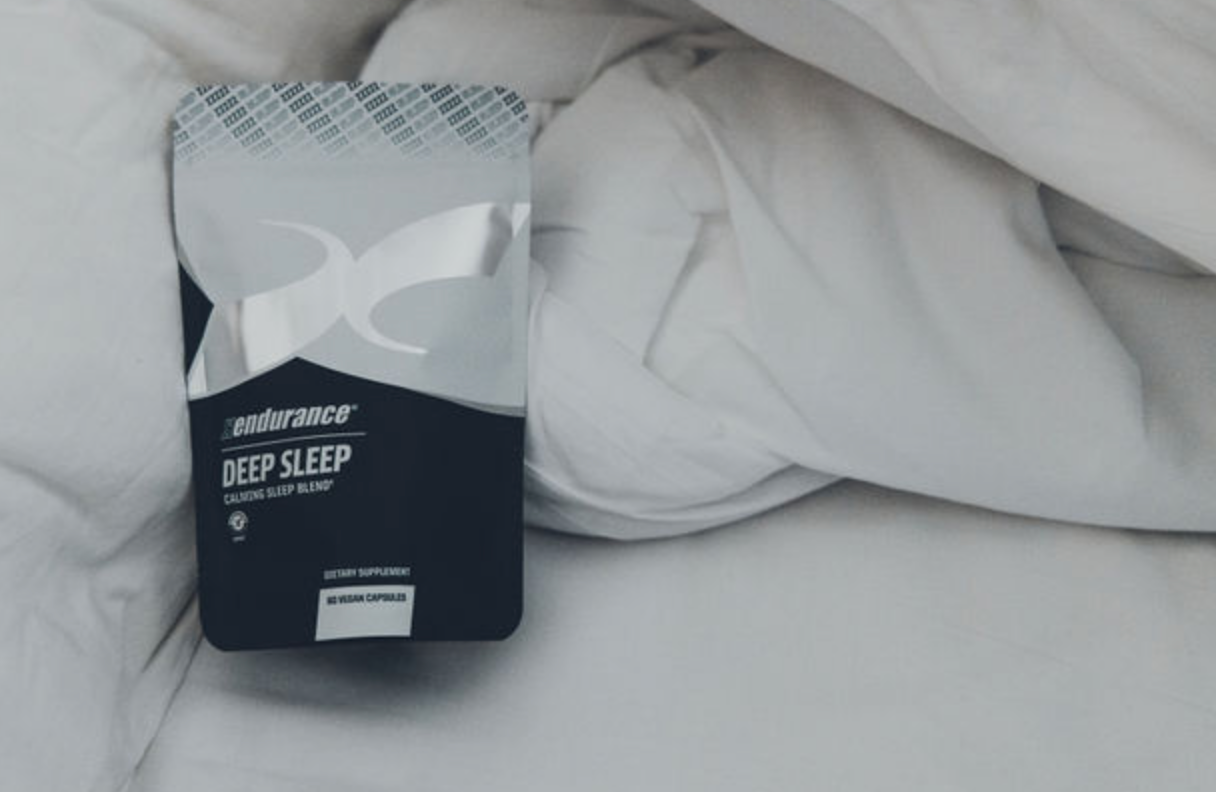Winter is fast approaching, bringing with it chilly weather, shorter days, and the annual surge in cold and flu cases. While bundling up and getting the flu vaccine are common preventative measures, there's another crucial factor that is often overlooked: sleep. Clinical research continues to demonstrate the profound effects of sleep on our immune system. Specifically, sleep deprivation has been linked to a weakened immune function, making us more susceptible to infections. Let's delve into the science behind this and why ensuring adequate sleep during the colder months is so essential.
The Immune System: A Quick Primer
Before we examine the link between sleep and immunity, it's crucial to understand the basics of our immune system. It is a complex network of cells, tissues, and organs that work together to defend the body against harmful invaders, like bacteria, viruses, and fungi. Key players in the immune response include white blood cells, antibodies, and the complement system, among others. When functioning optimally, our immune system identifies and neutralizes threats, keeping us healthy.

Key Players in The Immune System
Our immune system is a marvelously complex and efficient defense mechanism that helps fend off a plethora of pathogens, from bacteria and viruses to fungi and parasites. Here’s an explanation of some of its key players:
White Blood Cells (WBCs) or Leukocytes
These are the cells primarily responsible for the body's immune response. They circulate in the body through blood and lymph and are stored in the lymphoid organs. There are several types of white blood cells, each with its own specific function:
- Lymphocytes: These are the main type of cell found in the lymph. They include:
- T-cells (T-lymphocytes): They play a role in cell-mediated immunity. Some T-cells directly attack infected or cancerous cells, while others play a role in guiding and regulating immune responses.
- B-cells (B-lymphocytes): They are central to humoral immunity. When they encounter their specific antigen, they differentiate into plasma cells that produce antibodies.
- Neutrophils: These are the most common type of WBC and are the first to arrive at the site of an infection. They primarily target bacteria and fungi and use phagocytosis (engulfing the pathogen) to neutralize them.
- Macrophages: They are large phagocytic cells that engulf pathogens and dead cells. They also present parts of these invaders (antigens) to T-cells, initiating an adaptive immune response.
- Dendritic Cells: These cells present antigens to T-cells, activating them and thereby initiating an adaptive immune response.
- Natural Killer (NK) Cells: These cells target and destroy virally infected cells and cancer cells by detecting changes in the surface of these compromised cells.
Antibodies (Immunoglobulins)
Antibodies are protein molecules produced by B-cells (specifically, differentiated B-cells called plasma cells). They recognize and bind specifically to antigens, often found on the surface of pathogens. Once an antibody binds to its specific antigen, it marks the pathogen for destruction or neutralizes its harmful effects. There are several classes of antibodies, including IgG, IgM, IgA, IgD, and IgE, each with specific roles and locations in the body.
The Complement System
The complement system is a complex cascade of proteins found in the blood, which, when activated, plays roles in inflammation, phagocytosis, and cell lysis (breaking down cells). It can be activated via several pathways, but its primary function is to assist, or "complement," antibodies in clearing pathogens from the body. When activated, the proteins create a domino effect where each component activates the next, ultimately leading to the formation of a "Membrane Attack Complex" that punctures the cell wall of the pathogen, causing its death.
In essence, these players function in a coordinated manner, providing both broad, non-specific defense (innate immunity) and highly specific defense (adaptive or acquired immunity) against pathogens. This multi-layered, synergistic approach ensures that our bodies can fend off a wide array of invaders and remember them if they try to invade again in the future.
Sleep and Immunity: The Research
Several clinical studies have highlighted the intricate relationship between sleep and immune function. One study, published in the journal Archives of Internal Medicine, found that people who slept fewer than seven hours a night were nearly three times more likely to develop a cold than those who slept eight hours or more. This research underlines the fact that even a small amount of sleep loss can have significant implications for our health.
Another study, published in the Journal of Immunology, provided insights into the mechanisms behind this relationship. The study indicated that chronic sleep deprivation can lead to a reduction in the number of circulating white blood cells. White blood cells, particularly T-cells and NK cells, are instrumental in fending off viral infections. A decrease in these cells means our bodies might not be as effective at combating viruses, like the common cold or flu.
A further study in the European Journal of Physiology showed that sleep enhances the potential activity of T-cells, a type of white blood cell that plays a key role in the body's immune response. When we sleep, the adhesive molecules on these cells, which enable them to target and kill infected cells, show increased activity. Sleep deprivation, on the other hand, has the opposite effect, reducing the efficiency of T-cells.
Why Winter Makes This More Relevant
The link between sleep and immunity becomes even more pertinent during the winter months for several reasons:
- Higher Infection Rates: Winter is synonymous with flu season. The influenza virus thrives in cold, dry conditions, making it more easily transmitted. Colds are also more common during this time. With the heightened risk of exposure, a robust immune system becomes even more crucial.
- Shorter Days, Longer Nights: The shorter daylight hours can disrupt our circadian rhythms, potentially leading to poor sleep quality and duration. Additionally, the lack of sunlight means reduced vitamin D production, which plays a role in immune function.
- Holiday Stress: The holiday season, while festive, can also be stressful. Stress hormones can interfere with sleep and suppress immune function, creating a double-edged sword.
Tips for Ensuring Sound Sleep
Given the pivotal role of sleep in maintaining a robust immune system, particularly during the vulnerable winter months, here are some recommendations to ensure you get quality rest:
- Establish a Routine: Go to bed and wake up at the same time every day, even on weekends. This consistency can reinforce your body's sleep-wake cycle.
- Create a Sleep-Inducing Environment: Make sure your bedroom is dark, quiet, and cool. Consider using earplugs, an eye shade, or a white noise machine if needed.
- Limit Exposure to Screens: The blue light emitted by phones, tablets, computers, and TVs can interfere with melatonin production, a hormone that regulates sleep.
- Mind Your Diet: Avoid large meals, caffeine, and alcohol close to bedtime. They can disrupt sleep.
What to Look For In Supplementing To Boost Immune and Sleep Health
If you're looking to support both immune function and healthy sleep with a supplement, it's essential to understand that no pill can replace a well-balanced diet, good sleep hygiene, and a healthy lifestyle. However, certain vitamins, minerals, and other compounds have been shown to play roles in both immune function and sleep regulation. Here's what you might consider when searching for a supplement:
For Immune Support:
- Vitamin C: A well-known immune system supporter, vitamin C supports the production of white blood cells, aids in their function, and helps maintain the skin’s barrier against pathogens.
- Vitamin D: It has a role in activating T-cells in the immune response. Many people are deficient, especially in winter months when sun exposure is limited.
- Zinc: This mineral is crucial for immune cell development and function and has been shown to reduce the duration of cold symptoms.
- Elderberry: Some studies suggest that elderberry can reduce the severity and duration of cold and flu symptoms.
- Echinacea: It's often used as a natural remedy to boost the immune system, especially during cold and flu season.
For Sleep Support:
- Melatonin: This is a hormone that regulates the sleep-wake cycle. Supplemental melatonin can be useful for people struggling with jet lag or certain sleep disorders.
- Magnesium: This mineral plays a role in muscle relaxation and the function of the nervous system. Some people find that magnesium helps improve sleep quality.
- Valerian Root: It's been traditionally used as a remedy for various ailments, including sleep disorders.
- L-Theanine: Found in tea leaves, this amino acid can promote relaxation without drowsiness.
- Chamomile: Often consumed as a tea, chamomile has compounds that may have a calming effect, helping induce sleep.
General Considerations:
- Multifunctional Supplements: Some supplements are formulated to address both sleep and immune support. Look for combinations of the above ingredients but ensure the dosages are appropriate and not excessive.
- Quality: Choose supplements from reputable manufacturers. Check for third-party testing to ensure potency and purity.
- Interactions and Side Effects: Before starting any new supplement, consult with a healthcare professional. Some supplements can interact with medications or have side effects.
- Dosage: More doesn't always mean better. It's crucial to follow recommended dosages and guidelines.
- Natural doesn't always mean safe: Just because a supplement is natural doesn't always mean safe: Just because a supplement is natural doesn't mean it's safe for everyone. Always read labels, and if you have underlying conditions or are on medication, consult with a healthcare provider.
Remember, while supplements can provide support, the foundation for a healthy immune system and good sleep is a balanced diet, regular exercise, managing stress, and maintaining good sleep hygiene practices. Supplements should complement, not replace, these foundational practices.
Fortifying Sleep and Immunity: Thriving Through Winter's Challenges
As winter approaches, bringing with it colds, flu, and other viruses, it's vital to prioritize our body's defenses and sleep health. The shorter days can disrupt our sleep patterns, a cornerstone of immunity, making us more vulnerable to illnesses. The connection between sleep and immunity is well-documented, emphasizing the importance of maintaining both. To face winter's challenges head-on, we should adopt a holistic approach, blending good sleep habits with immune-boosting strategies. By doing so, we're not just enduring the season, but flourishing with optimal health.









Leave a comment
This site is protected by hCaptcha and the hCaptcha Privacy Policy and Terms of Service apply.